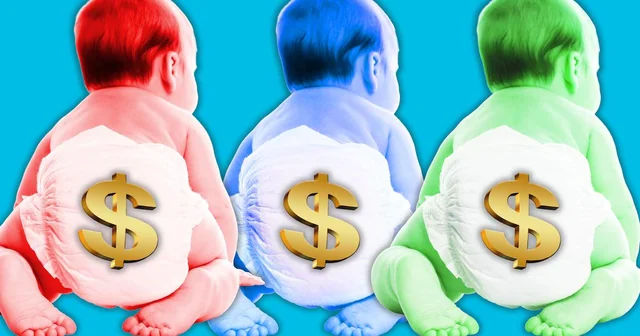Written By Lexx Thornton
Who would have thought that the government would pay you to have children? Are youconvinced that your eggs need to begin hatching after President Donald Trump’s newannouncement? President Trump announced a program that will deposit $1,000 in investment accounts for newborn Americans born after December 31, 2024, and before January 1, 2029. In an effort to incentivize more Americans to have children, President Donald Trump’s latest tax bill dubbed his “big beautiful” plan, introduces a new type of savings option for children calledMAGA Accounts.
These accounts come with a one-time $1,000 deposit from the federal government for every child born between January 1, 2025-January 1, 2029. They are designed to grow with taxadvantages and can be used for things like education, buying your first home, or starting abusiness. These tax-deferred accounts are designed to track stock market performance and allowparents to contribute up to $5,000 annually. Withdrawals are permitted at age 18 for specificpurposes such as education, job training, starting a business, or purchasing a first home, withfunds used for other purposes taxed as ordinary income. The program is projected to cost over $3 billion annually based on current birth rates.
Major business leaders, including CEOs of Uber, Goldman Sachs, Dell Technologies, and Robinhood, have expressed support for the program, citing potential long-term economic benefits. Some companies have pledged to match contributions for their employees’ children,indicating a positive reception from the corporate sector. Critics argue that the program disproportionately benefits wealthier families and comes amid proposed cuts to social programs like Medicaid and the Supplemental Nutrition Assistance Program. A Congressional Budget Office analysis reported that the initiative would add $2.4 trillion to the national debt over a decade and significantly reduce Medicaid and food assistance, potentially leaving nearly 11million Americans without healthcare by 2034.
The introduction of Trump accounts represents a significant policy initiative aimed at promoting long-term financial security for future generations. While the program has garnered support from corporate leaders and some policymakers, it faces criticism for potentially exacerbating wealth inequality and diverting resources from existing social programs. Its success will depend on itsimplementation and the broader economic context in which it operates.

